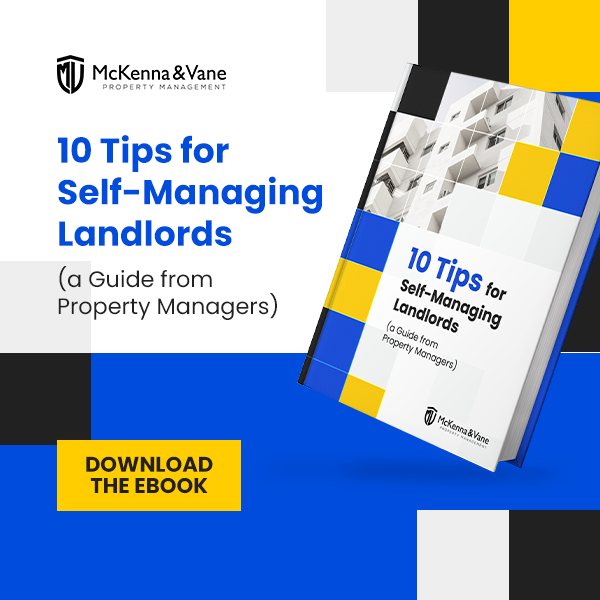Three Critical Questions To Ask Yourself Before Buying An Investment Property
Thinking about buying an investment property? It’s a thrilling prospect, but before you dive in, have you asked yourself the right questions? As a landlord, making a savvy investment requires more than just a good location or a great deal.
You need to consider how you plan to profit, understand the specific risks involved, and have a solid plan to mitigate those risks.
In this article, we’ll walk you through three critical questions to ask yourself before taking the plunge. By doing so, you’ll be well-equipped to make a wise and profitable investment decision.
Question #1: How Do I Plan to Profit?
Before buying an investment property, it's crucial to clearly understand how you intend to make money. There are generally two main ways to profit from an investment property: rental income and property appreciation.
Rental Income
This is the money you earn from renting out the property to tenants. To maximize rental income, consider the property's location, type, and the current demand for rentals in that area.
Calculate the potential monthly rent and compare it to your mortgage payments, property taxes, maintenance costs, and other expenses. Ensure that the rental income covers all these costs and leaves you with a profit.
Property Appreciation
This refers to the increase in the property's value over time. To benefit from property appreciation, you need to buy in an area where property values are expected to rise.

Research local market trends, economic growth, and future development plans. Consider the property's condition and any renovations you might need to increase its value.
Combining these strategies can provide a balanced approach to profiting from your investment property. A well-researched plan will help you make informed decisions and maximize your return on investment.
Question #2: What Are the Specific Risks Involved?
Understanding the risks associated with investment properties is vital to making a sound decision. Here are some major risk factors for both rental properties and flipping strategies:
Rental Properties
- Vacancy Rates: High vacancy rates can significantly reduce your income. If your property remains vacant for long periods, you will still need to cover mortgage payments and maintenance costs without rental income.
- Tenant Issues: Problematic tenants can cause damage to the property, fail to pay rent on time, or require costly legal proceedings to evict. This can lead to unexpected expenses and stress.
- Market Fluctuations: Changes in the local rental market, such as increased competition or economic downturns, can reduce the demand for rentals, leading to lower rental income and property values.
Flipping Strategies
- Renovation Costs: Underestimating renovation costs can eat into your profits. Unexpected repairs and upgrades can quickly escalate expenses.
- Market Timing: The success of flipping largely depends on market conditions. If the market declines after you purchase the property, selling it at a profit can be challenging.
- Holding Costs: If the property doesn't sell quickly, you'll incur holding costs such as mortgage payments, property taxes, and maintenance, which can reduce your profit margins.

By recognizing these risks, you can better prepare and develop strategies to mitigate them, ensuring a more secure investment.
Question #3: What Specific Mitigations Can I Implement to Minimize Risk?
Mitigating risks is essential to protect your investment and maximize returns. Here are some strategies to minimize the risks associated with investment properties:
For Rental Properties
- Conduct Thorough Tenant Screening: Implement a rigorous tenant screening process to ensure you select reliable tenants. Check their credit history, employment status, and references to reduce the risk of late payments and property damage.
- Maintain a Cash Reserve: Set aside a cash reserve to cover unexpected expenses such as repairs, vacancies, and legal fees. This will provide a financial cushion and prevent you from being caught off guard by unforeseen costs.
- Regular Property Maintenance: Regular maintenance can prevent minor issues from becoming major problems. Schedule routine inspections and address any repairs promptly to maintain the property's condition and avoid costly repairs down the line.
For Flipping Strategies
- Accurate Budgeting: Create a detailed budget that includes all potential costs, including purchase price, renovation expenses, holding costs, and selling fees. Add a buffer for unexpected expenses to avoid budget overruns.
- Market Research: Thoroughly research the local real estate market to understand current trends and future projections. This will help you choose a property with high appreciation potential and avoid markets with declining values.
- Hiring Professionals: Work with experienced professionals such as real estate agents, contractors, and inspectors. Their expertise can help you avoid costly mistakes and ensure that renovations are completed efficiently and to a high standard.

By implementing these risk mitigation strategies, you can safeguard your investment and increase the likelihood of achieving your financial goals. Careful planning and proactive management are key to minimizing risks and maximizing returns in real estate investing.
Bottom Line
Investing in property can be a rewarding venture if you carefully consider how you plan to profit, understand the specific risks involved, and implement strategies to mitigate those risks.
By addressing these critical questions, you'll be better prepared to make informed decisions and maximize your returns. If managing your property feels overwhelming or you simply want expert assistance, consider hiring a professional property management company like McKenna & Vane Property Management.
They can help you navigate the complexities of real estate investing, ensuring your investment is both profitable and stress-free. Reach out to McKenna & Vane today to discuss your options and find the right investment strategy for you.
